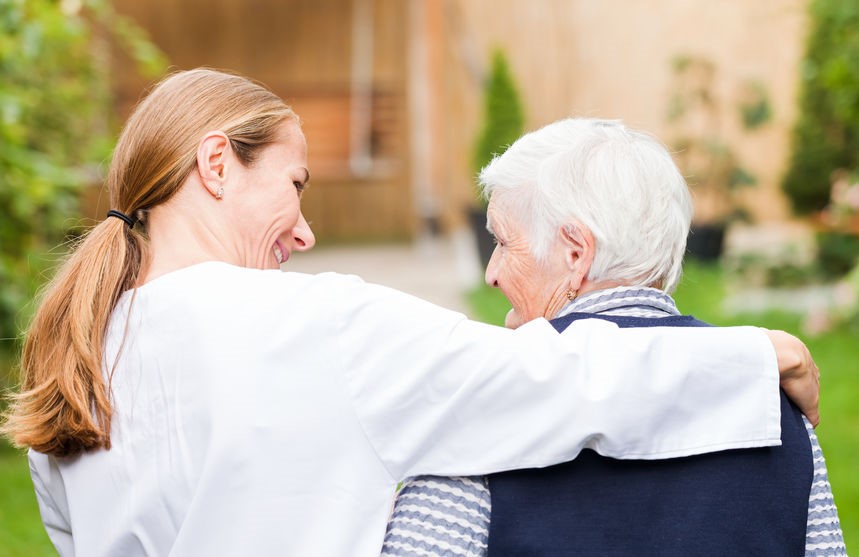3 Important Things to Know About Anxiety and Depression
May is National Mental Health Awareness Month; it’s our an annual opportunity to learn more and to build comfort and fluency discussing our mental health. So far, 2020 has been a particularly challenging year when it comes to our mental health. Managing the stress of the COVID-19 outbreak isn’t easy. If you’ve experienced increased feelings of fear, sadness, isolation and worry, you’re not alone. The Mayo Clinic reports: “Many people may have mental health concerns, such as symptoms of anxiety and depression during this time.”
 There was a time when mental health was considered a private matter, an internal struggle that was best left to each person to grapple with alone. We’ve moved on from that thinking, because we recognize that mental health is just like our physical health. We have to take care of our mental health by monitoring it, treating it and exercising good self-care to maintain it.
There was a time when mental health was considered a private matter, an internal struggle that was best left to each person to grapple with alone. We’ve moved on from that thinking, because we recognize that mental health is just like our physical health. We have to take care of our mental health by monitoring it, treating it and exercising good self-care to maintain it.
This is why it’s important to recognize our feelings and increase our understanding about our mental health. Anxiety and depression are common mental health issues; consider these basic facts about each.
Depression is an Illness
People commonly use the word “depressed” to mean “very sad.” But depression is actually an illness that goes beyond feeling sad. The National Institute on Aging (NIA) explains: “When you have depression, you have trouble with daily life for weeks at a time. . . Depression is a real illness. It is not a sign of a person’s weakness or a character flaw. You can’t “snap out of” clinical depression. Most people who experience depression need treatment to get better.” Symptoms of depression may include feelings of guilt or hopelessness, suicidal thoughts or irritability, among others.
The NIA points out that depression is not a regular part of getting older. When difficult things happen to seniors, like losing a loved one or having to live in isolation because of COVID-19, those individuals may feel sad. They work through those feelings, though, and emotionally rebound. The NIA explains: “After a period of adjustment, many older adults can regain their emotional balance, but others do not and may develop depression.”
According to the Anxiety and Depression Association of America (ADAA), seniors who are managing multiple ailments or illnesses are at a higher risk for depression. If you’re experiencing symptoms of depression, consult your doctor. Depression is painful, but it’s also treatable.
Anxiety is More Common Than You Might Expect
“Anxiety disorders are the most common mental health conditions in adults in the United States” explains the ADAA. More than 40 million people struggle with anxiety every year. Anxiety causes sufferers to experience a searing sense of worry. “[I]t is typically a mental health condition that causes the sufferer to worry more about everyday things than they should.”
Living with such a chronic and elevated sense of worry can make sufferers experience physical symptoms like chest pain, sweating, shortness of breath and loss of concentration and appetite, among others.
Like depression, anxiety is a treatable illness.
Help is Available
Having deep, unrelenting feelings of sadness or worry that seem hard to find the cause of and difficult to control can be indicators of issues that are beyond the regular emotional landscape. A key point to remember: don’t feel embarrassed or afraid to talk to your doctors about such issues or others related to your mental health.
Once seniors who are struggling with anxiety or depression talk with their doctors, they will likely put those patients on a treatment plan that may include medication. The plan may also include talking with a counselor or a therapist to explore emotional issues related to the pain. During the COVID-19 outbreak, many mental health professionals are meeting with patients through telehealth, so patients don’t have to endanger their health by leaving their homes.
Doctors may also recommend lifestyle changes and a good self-care regiment. This may include dietary changes and regular exercises. These lifestyle changes stand to invite calm and to help usher in good sleep habits, which help when one is struggling with anxiety or depression.
While it may seem overwhelming to incorporate a new dietary plan, your Visiting Angels Caregiver can help you with the shopping and cooking that such a lifestyle change invites.
Focus on your mental health and wellness this May; it a great opportunity to get healthy, inside and out.
